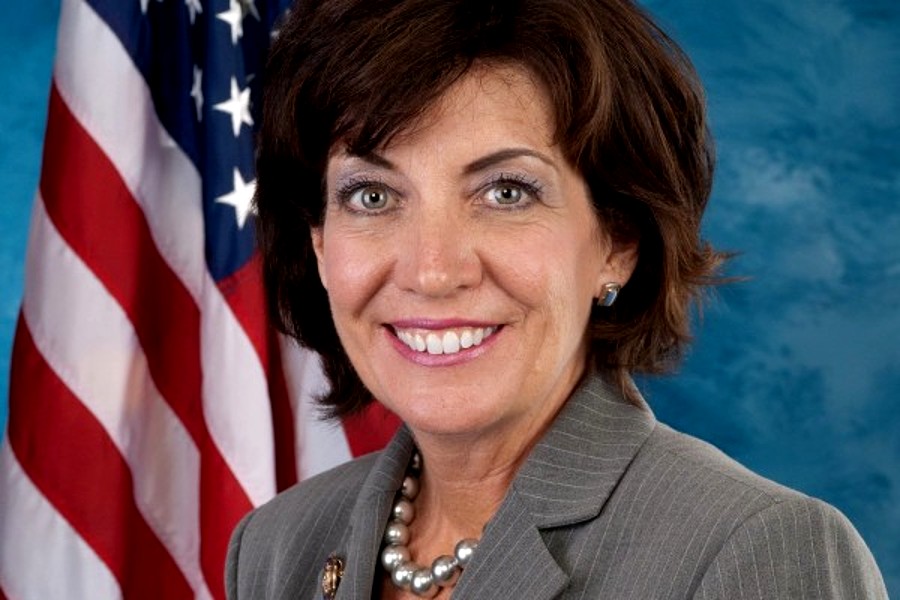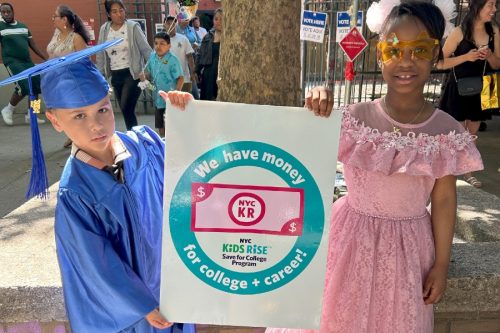
As the New York State Legislature’s 2024 session ends, communities of color and low-income communities across the state will continue to suffer.
“Albany fail to take action on … environmental justice legislation …”
The y will continue to suffer from rising energy costs, polluted air, and toxic exposures as elected officials in Albany fail to take action on impactful and common sense environmental justice legislation, including the New York Home Energy Affordable Transition (NY HEAT) Act (S.2016B/A.4592B), the Beauty Justice Act (S.4265B/A.6969B), and the Lead Paint Right to Know Act (S.2353A/A.4820B).
“Despite the state’s mandate to reduce the greenhouse gas emissions that contribute to climate change, and all of the lip service about equitably addressing the disproportionate impacts of pollution on environmental justice communities, Albany failed again to pass key legislation that would protect our communities from environmental hazards,” said Briana Carbajal, State Legislative Manager at WE ACT for Environmental Justice.
“The New York State Assembly, under the leadership of Carl Heastie, and Governor Kathy Hochul once again held the financial interests of fossil fuel companies in higher regard than the people who call this state home by failing to pass the NY HEAT Act,” said Annie Carforo, WE ACT’s Climate Justice Campaigns Manager. “This bill would have given the Public Service Commission the ability to transition communities from fossil fuels to renewable energy, which is essential for New York to reach its climate goals laid out in the Climate Leadership and Community Protection Act – and thereby reducing the disproportionate impact of climate change and air pollution on people of color.
“NY HEAT would have also taken action to address the energy affordability crisis in the state,” added Carforo. “It would have capped residential energy bills at 6 percent of household income, something the State had already committed to back in 2016 but failed to act on. This has life-saving implications as we head into another hot, deadly, summer where people cannot afford their energy bills.”
“… Hochul’s contradictory and questionably legal eleventh-hour reversal …”
And now, after failing to enact major climate legislation this session, Governor Hochul’s contradictory and questionably legal eleventh-hour reversal of congestion pricing deals another blow to New York’s emission reduction goals, and disproportionately hurts the vast majority of New Yorkers who rely on public transit, as well as environmental justice communities set to benefit from this increased revenue.
Governor Hochul insisted that her reversal on congestion pricing was an effort to lower costs for New Yorkers despite the fact that she was actively blocking energy affordability provisions in NY HEAT. Now there is no plan for how the Metropolitan Transportation Authority (MTA) will now meet the $15 billion hole in their capital budget, putting beneficial transit projects for New Yorkers at risk.
“… the Second Avenue Subway into East Harlem – a project WE ACT …”
The proposed tolling program would reduce traffic and gridlock, cut air pollution, and provide at least $1 billion annually in additional revenue for the MTA’s capital program, including projects to improve service and accessibility, electrify the MTA bus fleet and bus depots, and expand the Second Avenue Subway into East Harlem – a project WE ACT has long supported and advocated for.
To make matters worse, the state legislature did not prioritize a widely popular piece of legislation statewide, and will continue to allow New York residents to unknowingly expose themselves to toxic chemicals through the largely unregulated use of personal care products.
“A recent study contributed to the mounting evidence that exposure to endocrine disruptors, all-too-commonly found in our beauty products, are adversely impacting the menstrual cycles of young women, particularly women of color, leading to early puberty, infertility, and endometrial and breast cancers,” noted Elizabeth Reyes, WE ACT’s Toxics Policy Campaigns Coordinator. “The Senate and Assembly ignored the overwhelming data and failed to pass the Beauty Justice Act, which would have banned the most toxic chemical ingredients in our cosmetics and personal care products.”
Lastly, leadership yet again abdicated responsibility to address one of the most egregious environmental injustices in our state – childhood lead poisoning.
“… Black children living below the poverty line are twice as likely to suffer …”
“New York State leads the nation in cases of children with elevated blood lead levels, with 12 percent of the kids born in 2019 having been impacted by exposure to lead. And children of color are more likely to be victimized by this entirely preventable environmental disease, with studies showing that Black children living below the poverty line are twice as likely to suffer from it than their white counterparts,” added Reyes. “Yet the Senate failed to pass the Lead Paint Right to Know Act, which would have required owners of homes built before the state banned lead-based paint in 1978 to test for lead before they sell it and to disclose the results, so parents would know about the risks before their child suffers from the life-long, irreversible impacts, which include neurological disorders, kidney and hearing damage, and cognitive impairment.”
WE ACT for Environmental Justice is a Northern Manhattan membership-based organization whose mission is to build healthy communities by ensuring that people of color and/or low-income residents participate meaningfully in the creation of sound and fair environmental health and protection policies and practices. WE ACT has offices in New York and Washington, D.C. Visit us at weact.org
Photo credit: Wiki.
Become a Harlem Insider!
By submitting this form, you are consenting to receive marketing emails from: Harlem World Magazine, 2521 1/2 west 42nd street, Los Angeles, CA, 90008, https://www.harlemworldmagazine.com. You can revoke your consent to receive emails at any time by using the SafeUnsubscribe® link, found at the bottom of every email. Emails are serviced by Constant Contact










